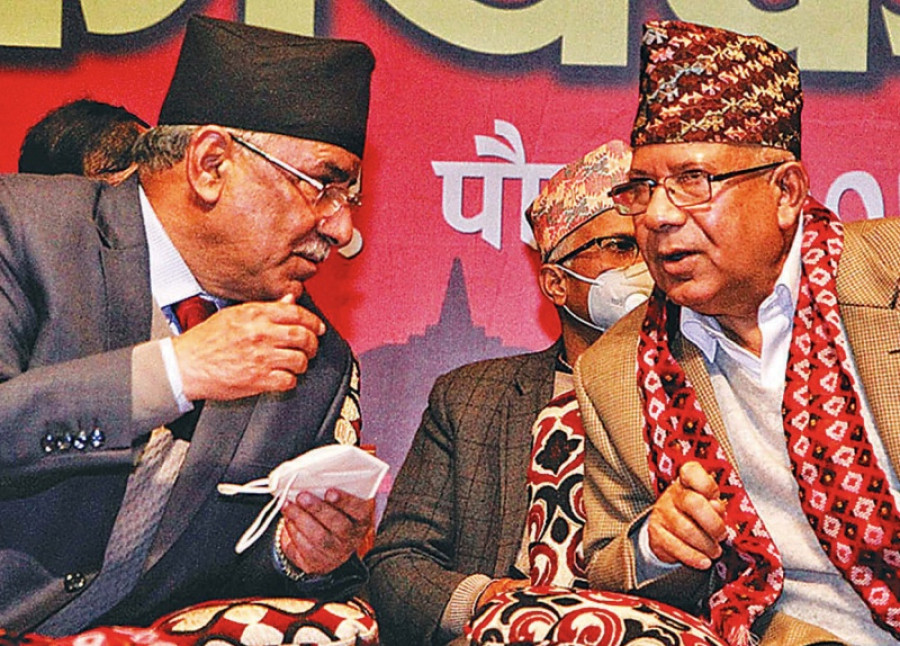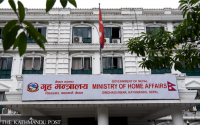National
Dahal-Nepal camp drafting white paper to convince other parties, civic groups to join stir
Members of the civil society have been questioning the faction’s commitment to democracy, rule of law and social justice.
Tika R Pradhan
In a bid to convince the erstwhile opposition parties and the civil society to organise joint protests against Prime Minister KP Oli’s decision to dissolve the House of Representatives, the Pushpa Kamal Dahal and Madhav Nepal-led faction of the Nepal Communist Party is drafting a white paper detailing its commitments to resolve the political impasse and its shortcomings.
After two erstwhile opposition parties—the Nepali Congress and the Janata Samajbadi Party—refused to take part in a joint movement against Prime Minister KP Sharma Oli’s move to dissolve the House, the Dahal-Nepal faction had formed a team to draft the white paper.
“We would rather call it our commitment paper to let people know what exactly we are up to and what our plans are for the near future,” said Raghuji Pant, a Standing Committee member of the Dahal-Nepal faction. “We have started consultations and are drafting it soon so that it could help convince other forces, including the civil society, to join hands to carry out a joint movement.”
The talk of the commitment paper comes as civil society members question the Dahal-Nepal faction’s commitment alleging that its only intention was to regain power, and not ensure good governance, internal democracy, rule of law, and social justice.
The faction of the Nepal Communist Party has been struggling to convince the opposition parties and the members of the civil society—both of whom are conducting separate protests against Oli’s move.
“Without a joint protest, we can’t press Oli to correct his move,” said Matrika Yadav, party’s Standing Committee member from the Dahal-Nepal faction. “Therefore, we want to convince all forces, including the civil society to agree to participate in a joint struggle.”
The Secretariat meeting of the faction held last week had formed a nine-member team led by party Spokesperson Narayan Kaji Shrestha to draft the commitment paper.
The team includes Ghanashyam Bhusal, Bhim Rawal, Raghuji Pant, Janardan Sharma, Barshaman Pun, Lilamani Pokhrel, Surendra Pandey, and Beduram Bhusal as members.
Civil society members are asking the Dahal-Nepal faction of the Nepal Communist Party to first assess to what extent they were responsible for Oli’s regressive move.
“There are some crucial issues that the Dahal-Nepal faction of the ruling party has to answer to the public. The first one being their involvement in leading the nation towards regression,” said Rajendra Maharjan, a political analyst who is actively involved in Brihat Nagarik Andolan. “It was their responsibility to stop Oli from taking any regressive steps.”
According to Maharjan, the top leaders seemed to endorse many of the government’s regressive moves such as the issuance of several bills aimed at curtailing the freedom of the people guaranteed by the constitution and imposing prohibitions in different public places including Maitighar Mandala.
The members of the civil society have been saying that the country started regressing right from the days of the second Constituent Assembly. They argue that it was institutionalised with the 16-point agreement among the parties which the leaders promptly endorsed to draft the constitution, leaving a sizable section of the society, including Madhesis, Dalits, and Janajatis disappointed.




 10.63°C Kathmandu
10.63°C Kathmandu














